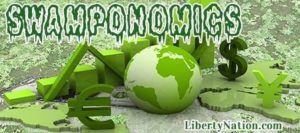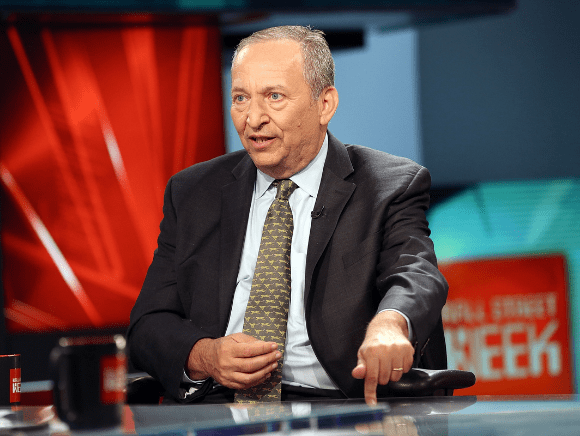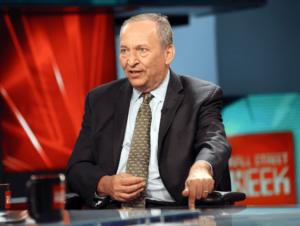President Joe Biden has celebrated his jobs record in 2021, declaring that the United States is “back to work.” Some Democrats claimed that he had created more jobs in seven months than any of his predecessors in history. In 2021, it was the highest of highs and lowest of lows on the labor front, with the best report coming in July (1.091 million jobs) and the worst happening in November (210,000 jobs). But the president has failed to add any net new jobs over the last year, compared to before the crisis.
The U.S. economy lost about 22 million jobs at the height of the first wave of the coronavirus pandemic. In the aftermath of the nationwide lockdown, President Donald Trump oversaw millions of jobs coming back to the marketplace. Since arriving at the Oval Office, President Biden has witnessed a 6.1 million bump in payrolls. Still, it is estimated that the labor market is short about three to five million positions.
 Put simply, these are no net new jobs but rather it is the return of pre-pandemic employment. And, if you wish to dive deeper into the economics of it, some of these positions were produced because of government spending and misallocation of resources. It is Fredric Bastiat’s “Broken Window Fallacy”: “Because he has had to replace the window, he will have to go without the suit.” This means that if Biden hired 100,000 workers to manufacture windmills, that is 100,000 fewer workers to create jet airplanes, drill for crude oil, or ship crops.
Put simply, these are no net new jobs but rather it is the return of pre-pandemic employment. And, if you wish to dive deeper into the economics of it, some of these positions were produced because of government spending and misallocation of resources. It is Fredric Bastiat’s “Broken Window Fallacy”: “Because he has had to replace the window, he will have to go without the suit.” This means that if Biden hired 100,000 workers to manufacture windmills, that is 100,000 fewer workers to create jet airplanes, drill for crude oil, or ship crops.
Moreover, for much of the year, a considerable portion of the job creation had been situated in a couple of sectors that experts purport are part of the sustenance economy, mainly hospitality, leisure, and retail. Fortunately, the last couple of labor snapshots suggest more broad-based job creation. Plus, job openings have risen to roughly 11 million, while the quit rate was approximately 4.2 million.
Another critical factor is that all the wage gains enjoyed by American workers over the last year had been eviscerated thanks to surging inflation. In November, hourly earnings climbed 4.9% year-over-year, but real wage growth clocked in at -2.3% as wages fell across most industries. With about half of the U.S. states raising their minimum wages, it will be riveting to monitor the post-pandemic economic situation unfold in the nation.
With employment costs anticipated to contribute to sizzling inflation next year, it will be a challenge, particularly for the Federal Reserve, to support growth and soaring consumer and producer prices.
Larry Summers Goes Scorched Earth on Bidenomics
Despite being a Democrat, former Treasury Secretary Larry Summers has been going scorched-earth on President Biden and his administration’s policies. In recent comments on Twitter, Summers homed in on two subjects: student loan debt and inflation, two things that could be going hand in hand soon.
The senior official in the Clinton and Obama administrations asserted that student loan debt relief is “regressive,” meaning that it only benefits the rich. Citing data from the Brookings Institution and a poll of economists, the highest-income 40% of U.S. households possessed about 60% of outstanding education debt and accounted for three-quarters of monthly payments. However, the lowest-income 40% of households owned fewer than a fifth of outstanding debt and represented only 10% of payments.
He also made an important point that debt reduction “promotes spending in the near term when the economy is clearly supply-constrained, thereby contributing to inflation pressures.”
Summers further slammed the White House for its “science denial” when it comes to solutions to combating near 40-year high inflation, including enhancing anti-trust laws. He wrote: “The emerging claim that antitrust can combat inflation reflects ‘science denial.’ There are many areas like transitory inflation where serious economists differ. Antitrust as an anti-inflation strategy is not one of them.”
The Harvard economist had one more warning in a recent Bloomberg Economics podcast: The U.S. could be facing a recession as officials attempt to fight sky-high prices.
Trudeaumania Hits Canadians’ Wallets
Canadians may be laughing at the world for having a vast stockpile of maple syrup and Tim Hortons coffee, but they may not be chuckling after looking at their paychecks and budgets at the end of each month. According to a new report from the Canadian Taxpayers Federation (CTF), everyone, from consumers to middle-class workers, is poised to hand over more of their hard-earned loonies and toonies to Ottawa.
“If you’re making more than $40,000, you’ll see your federal income tax bill go up thanks to rising payroll taxes,” said Franco Terrazzano, Federal Director with the CTF, in a news release. “From higher carbon taxes to rising alcohol, payroll and property taxes, there’s a raft of tax hikes coming in the New Year.”
The Canada Pension Plan (CPP) tax hike will cost workers and companies $333 in 2022. The government will raise the federal carbon tax to 11 cents per liter of gasoline in April, the third monthly increase. The employment insurance tax will hit workers and businesses by $63 and $89, respectively. Also, as the CTF notes, a few provinces, including Ontario, will engage in bracket creep: Officials refraining from updating tax brackets amid inflation.
“A pandemic is the worst possible time to be raising taxes,” added Terrazzano. “Many Canadians lost their job, closed down their business or took a pay cut during the pandemic, and that’s why all politicians should be reversing their tax hikes.”
Considering that Members of Parliament gave themselves a pay hike in the middle of a pandemic, why would anyone expect politicians to do the right thing?
~ Read more from Andrew Moran.






